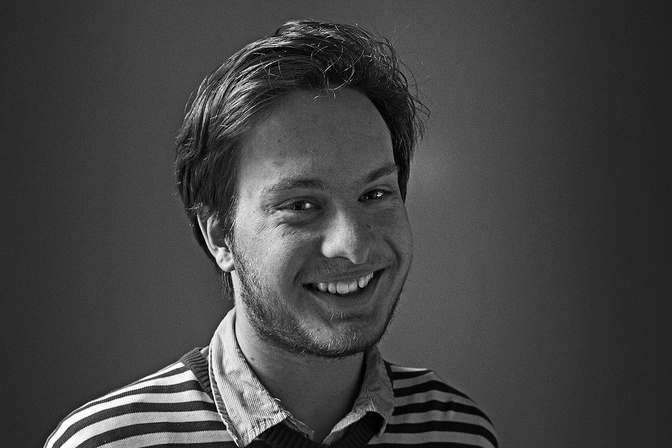We spoke to Penguin editors Johannes Jakob and Cate Blake ahead of their appearances at the Emerging Writers’ Festival about their experience in the industry, and advice for those eager to be part of it.

Johannes Jakob: I entered the industry through volunteering for Voiceworks, making friends with the people who worked there, and after a while I joined the editorial committee. I worked with Writers Victoria for over a year, helping them with a publication and also made some novellas with Express Media.
Cate Blake: I completed a Bachelor of Arts degree, and while studying was interning and volunteering for Voiceworks, Melbourne Writers’ Festival and Express Media. I was very lucky to get my position at Penguin less than a year after graduating. I’ve been here nine years.
CB: Experience in the industry is essential, but it doesn’t need to be only in publishing and editing. For example, I interned as a playwright assistant at some point. Also, [I’d recommend] a publishing/editing course for the tangible skills, and there’s generally a component where students are placed at a formal internship.
JJ: Yes, I think what people look for is work experience, rather than qualifications. Most of what I learnt has been through experience, on the job.
CB: The Australian industry is a little behind big industries like in the US and the UK, but in some ways this is useful. For starters, it’s easier to get into. What’s special is that there’s a strong independent scene here: bookstores and publications alike. This means that we can publish work that is both more creative and diverse because there’s a more niche readership.
JJ: There are, unfortunately, many more people studying such courses than there are jobs available. This means that there’s definitely an oversupply of people, especially those at entry-level jobs, which there aren’t many of anyway! When you’re looking at 500 qualified individuals all gunning for one of these rare positions, it’s hard to find candidates who really stand out.
CB: It’s true, there are very few entry-level positions. It’s also the type of industry where when you get your foot in the door, you tend to stay there, like me. Encouragingly, there are millions of jobs in the industry that are not just in the editorial field.
CB: For those who don’t have much hope for the future of books: statistics show that print is actually on the rise. Also, I think that because people love stories, there’ll always be reading, even if the means for reading changes. Therefore, the curation of these stories, which is publishing and editing, will always be there.
JJ: Volunteer, go to book and magazine launches, write and read – a lot – and go for internships. Put in your all, but also be wary of the very real danger of exploitation that many young writers face. I highly encourage finding a mentor – someone who has the right knowledge and sensibility that suits yours.
CB: For entry-level jobs, what stands out in the CV is when there’s an indication that the applicant understands what they’re getting into and an understanding of the industry, or a clear motive, for understanding the industry. You need to be able to apply your enthusiasm practically. You shouldn’t be too idealistic about a role in the industry, it’s not all pretty cover designs and Penguin classics. In fact, Penguin primarily publishes contemporary Australian fiction and non-fiction; it is essential that you have an understanding and an interest in this.
Emerging Writers Festival runs from June 14 to June 23 at various locations around Melbourne. More information and tickets are available here.



